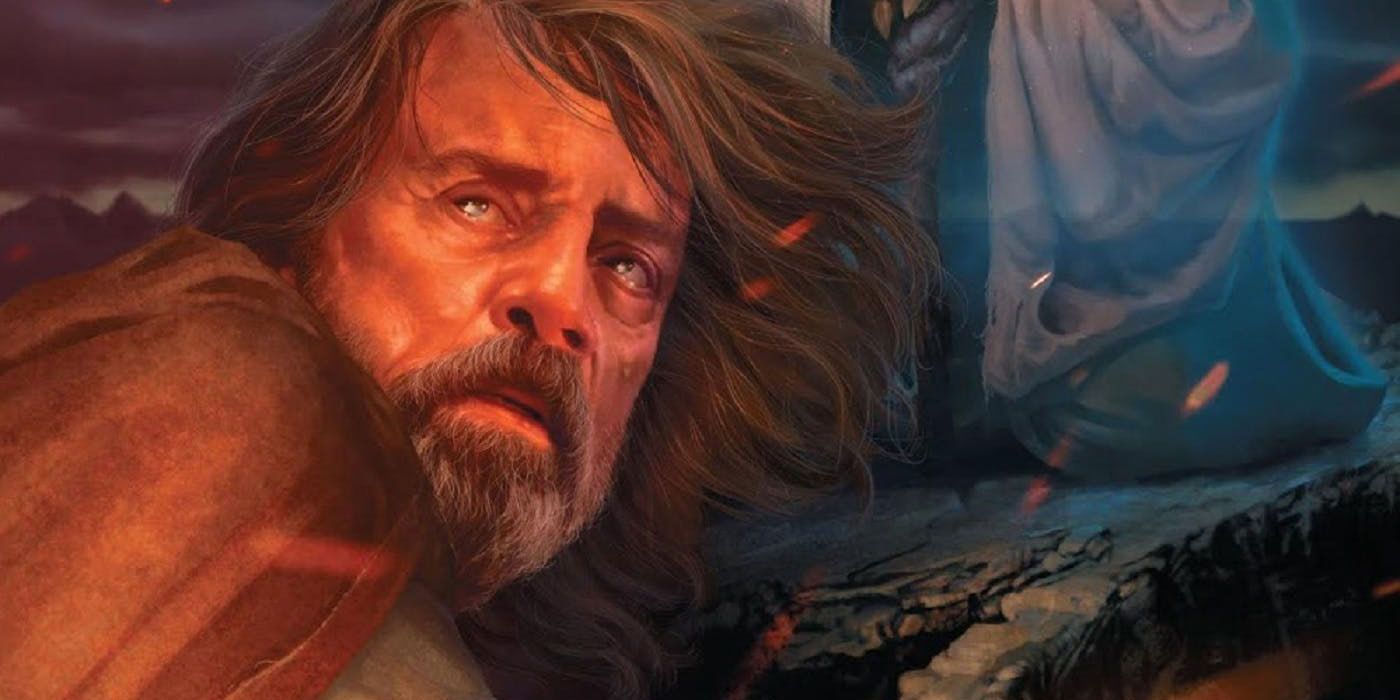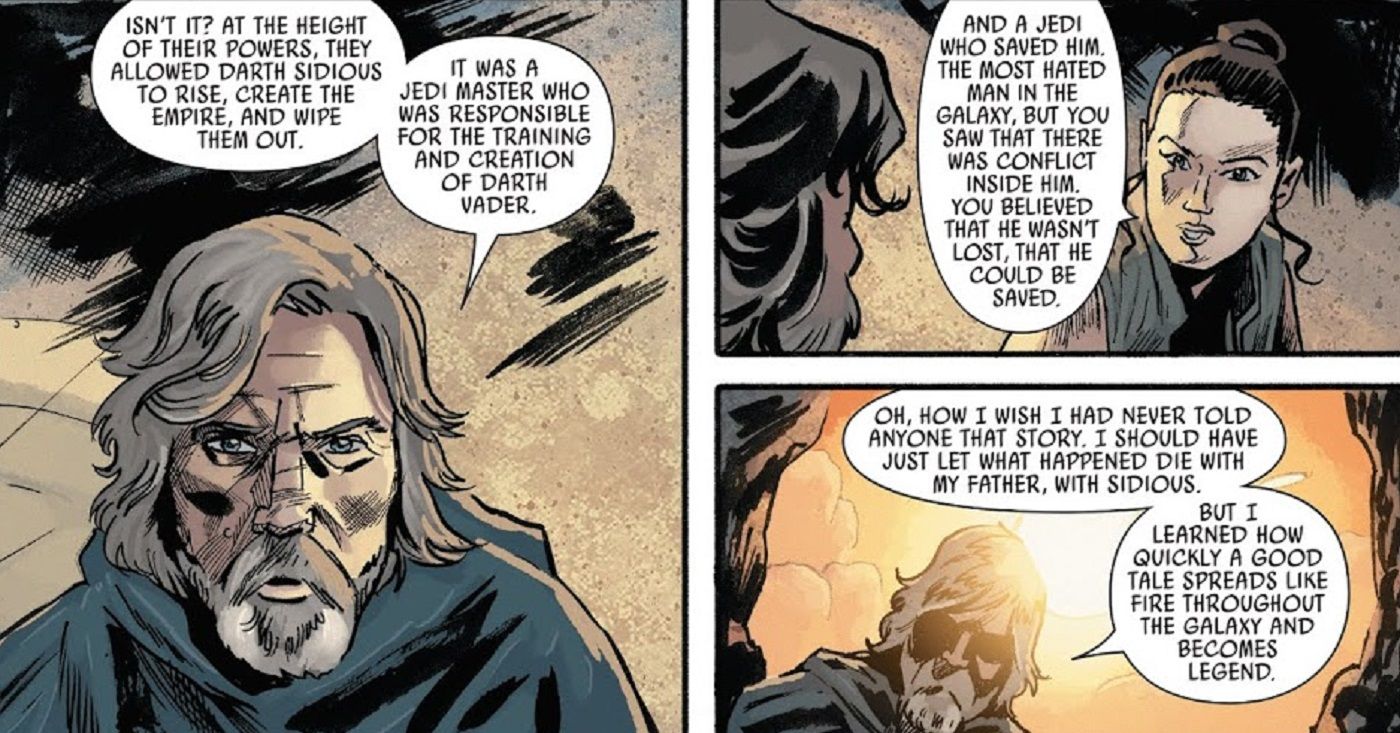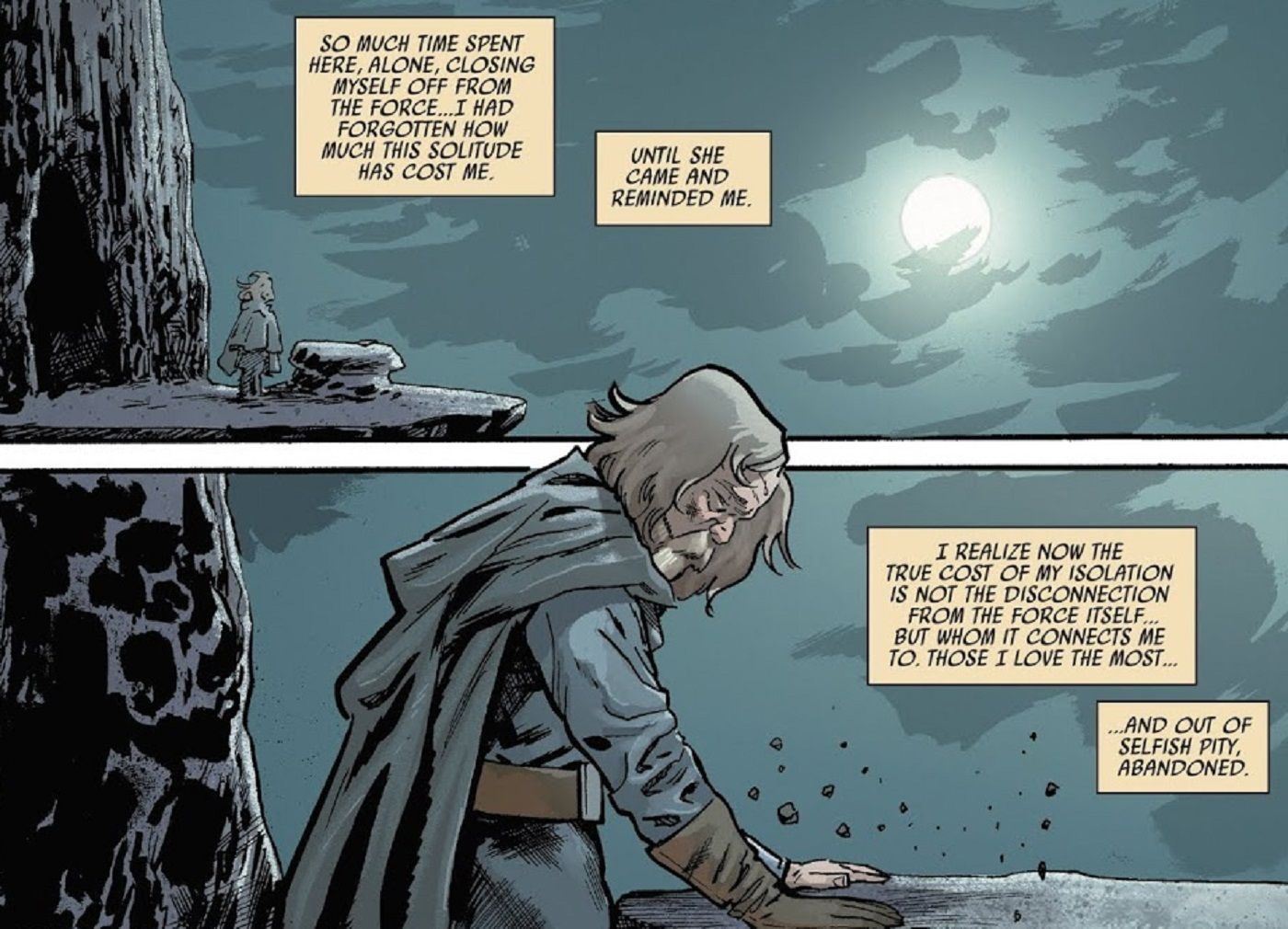SPOILER WARNING: The following article contains spoilers for Star Wars: The Last Jedi Adaptation #2 by Gary Whitta, Michael Walsh, Mike Spicer and Travis Lanham, on sale now.
As divisive as it was, Rian Johnson's Star Wars: The Last Jedi will forever go down in infamy for how it subverted the concept of the Jedi Order. A lot of this came down to how Johnson painted an older, bitter Luke Skywalker, a depiction even actor Mark Hamill took some issue with.
Nevertheless, despite how different Luke was from how fans remembered, he did go out on a heroic note, tricking Kylo Ren (Adam Driver) and allowing the rebels to escape the salt planet, Crait. While Marvel Comics had directly addressed what happened after this chain of events in its Poe Dameron series, Gary Whitta's The Last Jedi adaptation has been fleshing things out in its own way, ading "bonus scenes" which didn't make the movie's final cut.
RELATED: Star Wars: The Last Jedi – Admiral Ackbar’s Final Words, Revealed
In Issue #3, fans are treated to extra context detailing Luke as a recluse, while surprisingly revealing just what his biggest regrets were in the wake of his fall from grace.
Whitta's story more or less follows the same plot beats as the film, but there are a few instances where new dialogue appears, making the scenes richer and more emotive as a result. Here, Luke truly elaborates on his isolation, divulging his pain stems from much more than the movie told us. On the big screen, he regretted not being able to change the arcane ways of the Jedi, but we come to find out his woes run deeper, are much more personal and less bound by duty.
Whitta makes this clear when Luke teaches Rey her first lesson after reluctantly agreeing to train her. He's seen talking about the hubris of the Jedi and how pride and ego allowed the Sith to rise up once more, as per Johnson's film, but there's an extra moment, one that expands on why he hated becoming a legend after killing Emperor Palpatine and redeeming his father, Anakin Skywalker.
RELATED: Marvel’s Last Jedi Adaptation Has a Skywalker Moment the Film Sorely Lacked
Luke hates himself for having told everyone of this final battle on the Death Star in Return of the Jedi, as he believes by talking of his victory, he built up false hope in the Jedi, a reverence he admits he got caught up in himself. Luke believes this narcissism led to the fallout between him and Kylo, hence the reason he laments how word of his achievements spread like wildfire. While he wishes this never happened, Rey goes on to assure him everyone still has faith in him, as per the big screen.
A second crucial sequence comes after the con man D.J. (Benicio del Toro) helped Finn (John Boyega) and Rose (Kelly Marie Tran) esape Canto Bight. Just like Johnson's movie, Whitta then transitions into the scene where Luke's experiencing moments of self-torture over abandoning his family, especially after hearing how Kylo killed his father, Han Solo. Akin to the film, Luke goes out onto the cliff where he's accustomed meditating, and silently beats himself up, torn up over the losses endured by his Leia and Co. Whitta, however, includes Luke's inner-monologue in an emotional gut-punch.
He chastises himself for going into solitude and addresses the agony suffered from locking himself away from the Force on the ocean planet Ahch-To; all inspired by the virtuous presence of Rey. The kicker here, though, is Luke isn't really hurting over disconnecting from the Force (the mystical energy George Lucas introduced in 1977's A New Hope), instead he's in pain because he really did miss his loved ones -- which the film didn't frame well.
Luke's in a state of self-loathing, as the weight of what he did finally sunk in. These regrets manifest as guilt, stemming from his turning into an uncharacteristically selfish individual. Whitta's dialogue confirms he's acknowledging how unacceptable this cowardice was, as well as the self-pity he wallowed in; which helped the First Order oppress the galaxy in similar fashion to the Empire. Ultimately, Luke's regrets aren't about his failures and wanting to be a better Jedi Master, he just wishes he were a better person.



